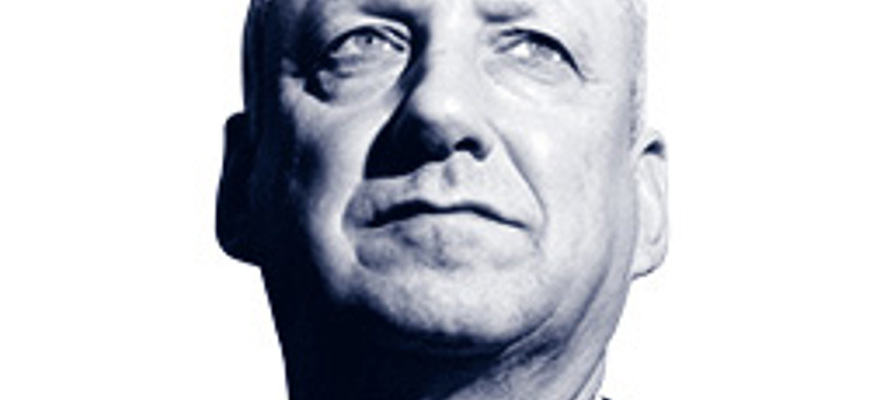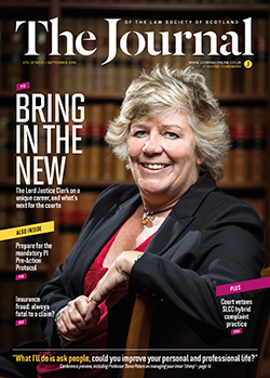To the focused, the medals

The first fortnight in August was a wondrous, sleepless, time to be British, or Scottish, or both, depending on your viewpoint. Team GB’s Olympians brought us one gobsmacking moment after another, and Scots played some memorable parts. It was a historic achievement, the first time an Olympic team has won more medals away than at its home games. Individual success was made possible by the pitiless focus with which the collective was managed.
Business talk is peppered with sporting idioms: the winning team, hitting the target, crossing the line. Are there lessons on strategy for law firm leaders from these great days? Well, let me throw my hat in the ring...
First, know the route. Be clear about your objectives, prepare for the long haul, and do not allow yourself to be knocked off course by events along the way. Consider, for example, the cyclists. Their rivals’ incredulity, and insinuations of doping, stem from the fact that GB did poorly in the last world championships. But those were never a priority. There was only one target, the Olympics. Everything else was regarded as an opportunity to help the team peak at the right time. Is your firm as clear about its strategic direction? Or does it lope along, doing what feels comfortable, hoping for a good outcome, but not in control of its destiny? “If you don’t know where you’re going,” said the Cheshire Cat, “any road will get you there.” The athletes, and those working in their cause, knew exactly. Their eyes were on nothing but the prize. They were clear from the outset on these questions:
- What is to be achieved?
- What are the crucial tasks?
- Who is responsible for performing them?
- What are the constraints on us, and how do we overcome them?
- What are the timescales?
- What can we learn from our competitors?
- What does success look like?
Secondly, great sportspeople focus relentlessly on innovation and improvement. The expression “aggregation of marginal gains”, made famous by cycling’s Dave Brailsford, has become almost a cliché. But the endless picking apart of every aspect of what goes into performance: nutrition, equipment, technique, psychology, the training regime, even personal relationships, has been fundamental to all his teams’ achievements. Similarly, in the world of law firms, those who constantly dissect and refine how they deliver the service, looking for ways of delivering greater accuracy, faster responses, more attractive pricing, a better experience for the clients and their own staff, are the ones pulling remorselessly ahead of the pack.
Thirdly, all the greats have worked as hard on their mental resilience as they have on their muscles. They have experienced disappointment, often heartbreak, and a myriad of obstacles. Think of Mo Farah arriving in the UK as a child of penniless immigrants. Think of Scots lawyer Katherine Grainger, beginning her path to gold in London, slumped over her oars and inconsolable after defeat in Beijing. The blood and tears of business are different, but the acid test is the same – how well do you rise above adversity, and use it to spur you on?
Fourthly, long-term team success depends more than anything on the accumulation and shrewd deployment of cash. Money doesn’t just talk, it screams. Winning leaders are unsentimental about giving resources only to those who look like they will produce the best returns. Britain’s recent Olympic history is a vivid example of how well this works. As The Economist put it, there was brass behind the gold. At Atlanta 1996, shoestring Britain won a solitary gold medal. This year, the lion’s share of £350m was allocated to individual sports strictly on the basis of who was most likely to achieve Olympic success.
Fund the less advantaged? Nope. Encourage mass participation? Another time, thank you, we’re busy with the élite. Darwin would have been proud. This blinkered focus on the best return is as fundamental to business as to sporting success. Backing winners means discarding losers. There is a significant human cost in wrecking dreams which may have been pursued for years, at great personal sacrifice. However, businesses that take what might be a more compassionate approach too far, allowing the unprofitable to potter along, and tolerate the survival of the unfittest, find invariably that in the end, the price is paid by everyone.
“The race,” said the great New York journalist and storyteller Damon Runyon, “is not always to the swift, or the battle to the strong. But that’s the way to bet.” Running a law firm is not an Olympian activity in the traditional sense. It’s not just the taking part that matters. But the way modern Olympic teams are created show competitors in every walk of life the way to the podium.
In this issue
- Beyond the named person service
- Sexual harassment: an everyday problem
- Governing Scotland in a federal United Kingdom
- Losing our judgment? (1)
- Reading for pleasure
- Opinion: Alison Reid
- Book reviews
- Profile
- President's column
- The future, step by step
- People on the move
- Changing face of the courts
- Success: the chimp factor
- Courts reform: a call to pre-action
- Teeth that could be sharper
- Good claims, bad lies
- Unlocking doors: demystifying squatting
- Back to basics
- Brexit and IP: what should solicitors be doing now?
- Agency, insolvency and termination
- Brexit and the agricultural sector
- A carnival for some, but not for others
- Scottish Solicitors' Discipline Tribunal
- Culling of the hybrids
- Common property: what policy?
- Cause of action
- Client balances: reminder issued
- Law reform roundup
- From the Brussels office
- Paralegal pointers
- Your Law Society of Scotland Council Members
- At the doors of the court
- Ask Ash
- To the focused, the medals
- Losing our judgment?
- MacKenzie boosts Society's AML drive






